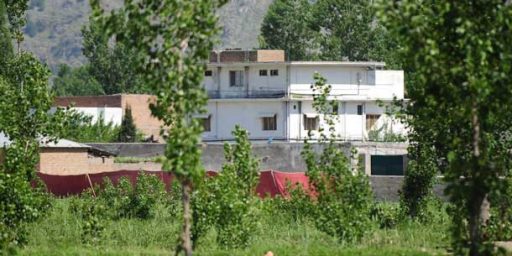IRAQ AND THE WAR ON TERROR
Brookings fellow Michael O’Hanlon takes on the question that keeps resurfacing: “Has the war to overthrow Saddam Hussein distracted the United States from more pressing matters, most notably the global war against al-Qaida?” His short answer is No, given that Iraq stabilization operations are occupying only one half the Army, a third of the Marines, and smaller fractions of the Navy and Air Force. He points to restructuring, new techologies, and lessons learned in the 1990s that has made such efficiencies possible.
He makes the excellent point that the major constraints on fighting al Qaeda have little to do with resource allocation:
The real limits on American effectiveness against al-Qaida are twofold. One, the United States doesn’t know where most al-Qaida members are located most of the time. Two, many are surely in Pakistan, beyond the reach of the U.S. military in any event. American law-enforcement officers have been working with Pakistanis, and have captured a couple of key al-Qaida leaders in Pakistan in the last 18 months. But the effectiveness of their efforts is mostly independent of the size of U.S. military forces in Afghanistan.
He does concede that there is merit to the question, however:
All that said, there are two important points where Democratic critics are surely right. First, because of the strain on America’s main combat forces due primarily to post-Hussein operations in Iraq, the United States has not deployed a large enough force to stabilize Afghanistan. Warlords still rule the countryside; the economy remains weak; security is poor; drug production is again rampant. Bush’s visceral aversion to nation building and his heavy use of American combat forces in Iraq, have largely prevented him from making good on his pledge in 2001 to the Afghan people to leave them with a much more stable and free country after the U.S.-led war to defeat the Taliban.
Many Muslims around the world, already cynical about the United States, see this reality as further proof of American indifference to their well-being. That reaction breeds anger, which can breed more terrorists.
While I’m reasonably well schooled in grand strategy, I’m not sufficiently versed in the operational art to assess the Afghanistan operation. I’ve read reports pointing both ways on this one. Some argue that more troops would just get in the way and that small Special Forces teams are what’s needed. But even if it’s true that we need more “boots on the ground” in Afghanistan, I find the “cynical Muslims” argument unconvincing. It’s not as if they have access to a free media, after all. Their view of the outside world is almost entirely dependent on what their governments allow them to have. Whatever criticisms we might have of CNN, Reuters, and the BBC, they’re not al Jazeera.
Second, the mission in Iraq, which promises to last for years, risks breaking the U.S. military. Combined with operations in Afghanistan and the Balkans, and vigilance in Korea, the United States is severely straining its combat forces. That will potentially make military service of far less appeal to those men and women in active and Reserve units who are needed for an all-volunteer armed forces.
U.S. Defense Secretary Donald H. Rumsfeld is therefore wrong to oppose the bipartisan congressional push to temporarily add several tens of thousands of troops to the U.S. military force structure. The strain on the military has not yet weakened the fight against terror, but it could weaken the national security quite dramatically in the future if it puts at risk the magnificent quality of today’s professional armed forces.
I tend to agree with O’Hanlon on the issue of opstempo. Indeed, I thought our troops were overburdened during the Clinton era. I’m not sold on the solution, though. Unless we’re simply going to train a lot of junior enlisted soldiers and add them to current units, I fail to see how we ramp up the force structure significantly in the short term.





“Whatever criticisms we might have of CNN, Reuters, and the BBC, they’re not al Jazeera.”
Not yet, anyway.
“Whatever criticisms we might have of CNN, Reuters, and the BBC, they’re not al Jazeera.”
Not yet, anyway.
http://news.bbc.co.uk/2/hi/3403951.stm
“Whatever criticisms we might have of CNN, Reuters, and the BBC, they’re not al Jazeera.”
Not yet, anyway.
http://news.bbc.co.uk/2/hi/3403951.stm
Tina, the Preview button is your friend!